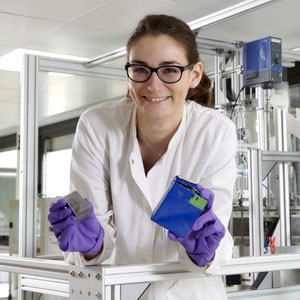Enhanced materials and processes for more sustainable growth
 | Green Chemistry and Processes for the Environment Platform
The Green Chemistry and Processes for the Environment Platform develops materials and processes for environmental applications, recycling, renewable energy components, hydrogen technologies, and carbon capture and recycling.
The Green Chemistry and Processes for the Environment Platform develops materials and processes for environmental applications,
recycling, renewable energy components, hydrogen technologies, and carbon capture and recycling. The platform's philosophy is that the circular economy is an innovation driver. This means developing
materials and
processes that severely limit the use of critical materials, that have the recovery and recycling of materials built-in, and that include plans for reuse of materials in the original or related processes. The platform is home to
experts in chemistry, chemical synthesis, chemical and physicochemical processes, and material forming processes. It is also staffed by people knowledgeable about
eco-innovation and
lifecycle analysis to ensure that the environmental impacts of the processes developed are limited. Materials can be synthesized and eco-processed at the
pilot scale to facilitate scaling them up for industrial implementation.
|